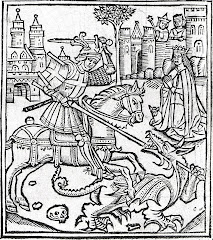Another poem I’d like to share with you, in part, is ‘Mária Lécina’ (1932) by J.W.F. Werumeus Buning (1891-1958), a Dutch poet, author and literary critic who lived in Amsterdam.
It’s a ballad meant to be sung accompanied by a guitar.
The full ballad has a hundred stanzas, no less, among them one unforgettable by its deep, throbbing melody of O’s and voiced vocals that alternate with the A’s in the even lines like heartbeats, a quality hard to equal in translation, but I’ll give it a try.
Firstly, the Dutch original of this one outstanding stanza,
Honderd klokken van Londen doen Londen bonzen
en vier kathedralen Genua
Maar geen brons kan zoo in het donker bonzen
als het hart van Mária Lécina
¿Porqué, Mária?
to be followed by my tentative translation of six picked stanzas that render the gist of the poem.
Mária Lécina has light eyes
green breakers roil inside them,
a spell is on those waters deep
there’s Hell and Heaven shines in them
¿Porqué, Mária?
The mountains are hot near Cartagena
And soft are the valleys of Ayora
But hotter and softer than mountains and valleys
is Mária Pepita Lécina
¿Porqué, Mária?
A hundred bells of London make London resound
and four cathedrals Genoa
But in the dark no bronze can ever resound
like the heart of Mária Lécina
¿Porqué, Mária?
Then her white bedspread she flung open
- Be my guest - said Mária Lécina
And she unhooked her black satin bodice open
- Eat the heart from my body - said Pepita
¿Porqué, Mária?
They slept until late in the morning
then there was the sunshine fierce
and Spain’s richest man and woman
Reclined behind a cotton curtain white
¿Porqué, Mária?
Then in the harbour the steam whistle blew
- Fie! - said Mária Pepita Lécina
And for the sailor there was nothing but to say
- Adiós Mária Lécina
¿Porqué, Mária?
Only the third stanza I know by heart though, sometimes, I stumble at the right number of Genoa cathedrals. I hope you can appreciate my efforts at rekindling some old, Dutch literary embers from the ashes. If not, it must be wholly my fault, as the poets definitely have merit.
Literature is abbreviated “lit.” and, by chance, LIT can be interpreted as meaning “Lost In Translation.”


